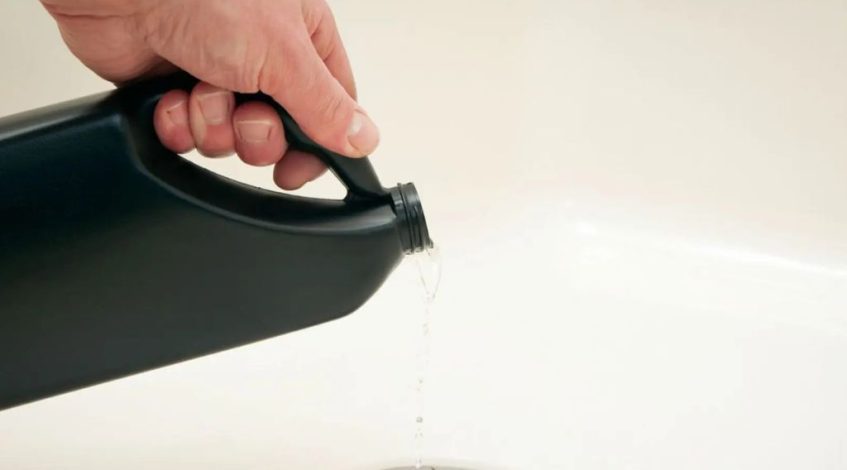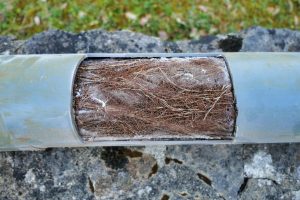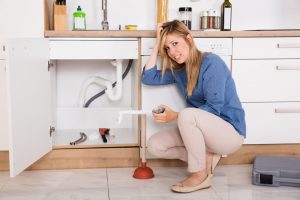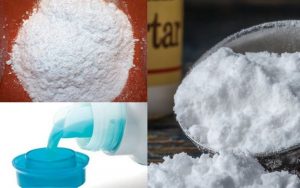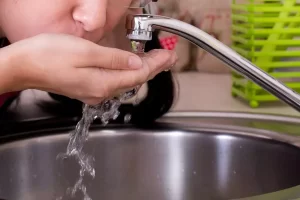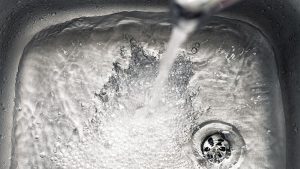Blocked drains can turn into a real headache fast, and you might be tempted to reach for the strongest solution you can find. Hydrochloric acid is a powerful chemical that promises to dissolve tough clogs, but is it the right choice for your home in Australia?
Before you pour anything down the sink it’s important to understand the risks and regulations around using hydrochloric acid for drain cleaning. You want your pipes clear, but you also want to stay safe, protect your plumbing and follow the law. Let’s look at what you need to know before you consider using such a strong chemical on your drains.
Understanding Hydrochloric Acid and its uses
Hydrochloric acid is a strong, corrosive chemical commonly found in concentrations between 10% and 33% for domestic and industrial applications in Australia. In drain cleaning, hydrochloric acid reacts with organic blockages – like hair, soap scum and grease – by breaking them down through chemical oxidation. This reaction produces heat and sometimes hazardous vapours, which means proper ventilation and personal protective equipment are essential during use.
Rocky Vuong, CEO and house cleaning services expert at Calibre House Cleaning Adelaide, explains, “Hydrochloric acid is incredibly effective for breaking down stubborn blockages, but it’s not something to take lightly. We’ve seen cases where improper use has damaged plumbing or created toxic fumes in enclosed spaces. At Calibre, our team is trained to use it safely and only when absolutely necessary – always with the right protective gear and ventilation.”
He adds, “For most household blockages, there are safer, enzyme-based solutions that work just as well without the risk. But when we do need to bring out the heavy-duty stuff, we make sure it’s handled with respect and caution.”
Homeowners are strongly advised to seek professional help rather than attempting to use hydrochloric acid on their own.
You often see hydrochloric acid used in sectors such as construction for cleaning mineral deposits from masonry, in swimming pool maintenance to balance pH levels, and in manufacturing various chemicals. Product labels in Australia may list hydrochloric acid as muriatic acid, especially in hardware stores.
Australian regulations control the sale and handling of concentrated hydrochloric acid due to risks associated with improper use. Businesses must comply with local workplace safety standards including correct storage and disposal procedures. Consumer products contain lower concentrations, but even these require strict safety precautions. Misusing hydrochloric acid can damage plumbing materials like PVC, copper and galvanised pipes, potentially worsening drain issues or posing health risks from exposure.
The role of Hydrochloric Acid in drain cleaning
Hydrochloric acid acts as a concentrated chemical agent for removing persistent drain blockages in Australia. Understanding its mode of action and how it compares to alternative solutions helps prevent hazards and unnecessary damage.
How Hydrochloric Acid works on drains
Hydrochloric acid dissolves organic matter in pipes through a rapid chemical reaction. Contact with blockages like hair, grease, and soap scum initiates oxidation, breaking these compounds down into simpler molecules. The reaction produces heat and releases noxious fumes such as hydrogen chloride, making proper ventilation and PPE mandatory. Metal corrosion occurs if acid contacts galvanised steel, aluminium, or copper pipes – PVC and ceramic systems experience less risk but can degrade after repeated exposure.
Effectiveness compared to other cleaning methods
Hydrochloric acid removes severe organic clogs faster than most domestic drain cleaners in Australian households. Below is a comparison of its effectiveness with other common methods:
| Cleaning Method | Typical Use | Effectiveness on Hair/Grease | Plumbing Risk | Time to Act |
|---|---|---|---|---|
| Hydrochloric Acid | Severe organic blockages | High | High | Minutes |
| Caustic Soda (NaOH) | Moderate blockages | Moderate | Moderate | 30 - 60 minutes |
| Enzyme Cleaners | Partial organic residues | Low-Moderate | Low | Hours |
| Mechanical Snaking | Solid/foreign object | High (solids) | Low | Immediate |
Hydrochloric acid proves effective for persistent organic debris, if rapid clearance outweighs the risk of pipe corrosion and exposure. Alternative solutions offer safer choices, especially for minor or recurring blockages, though typically with slower results and less risk to your drainage infrastructure.
Legal and safety considerations in Australia
Hydrochloric acid use in drain cleaning in Australia requires compliance with strict regulations and attention to health and environmental impacts. Using or purchasing strong chemicals for domestic use means navigating both legal restrictions and significant safety challenges.
Regulations surrounding chemical drain cleaners
Australian law governs hydrochloric acid sales through the Australian Dangerous Goods Code and state-based workplace health and safety regulations. Only licensed suppliers sell high-concentration acid above 10%, and you must provide a legitimate reason for purchase. Regulations require businesses to keep detailed records of purchases and product handling. Section 137 of the Work Health and Safety Act 2011 requires proper labelling, storage and staff training for workplaces using hazardous acids. Retail drain cleaners contain lower concentrations – typically under 10% – but you still face legal obligations to follow safety instructions on the label. Supplying or using concentrated hydrochloric acid for domestic drain cleaning without following legal requirements brings prosecution risk and significant fines.
Health and environmental risks
Hydrochloric acid poses severe health risks, including skin burns, eye damage and toxic gas release from chemical reactions in drains. Accidental inhalation or direct contact may result in immediate injury, even at lower concentrations. The Safe Work Australia website details exposure limits, stating that the permissible concentration for airborne hydrogen chloride is just 5 parts per million. Environmentally, hydrochloric acid can damage aquatic life and disrupt wastewater treatment processes. Drain discharge containing acid can corrode metal pipes and leach heavy metals or other toxic byproducts into local water systems. Australian authorities, such as the Environment Protection Authority (EPA), advise strict protocols for acid disposal and warn against pouring excess chemicals down drains without neutralisation.
Safe practices for using Hydrochloric Acid
Safe drain cleaning with hydrochloric acid in Australia requires strict adherence to chemical handling guidelines. Serious risks – including burns, vapour inhalation and plumbing damage – call for protective gear and controlled application at all times.
Protective measures and equipment
Personal protective equipment is non-negotiable when handling hydrochloric acid. Always use acid-resistant gloves (for example, neoprene or PVC), safety goggles, and a long-sleeved chemical-resistant apron. Securely fasten respiratory protection (such as a P2 mask) if ventilation is insufficient or when vapours are present. Ensure that workspaces remain well-ventilated – open windows and operate exhaust fans where available.
Store hydrochloric acid in its original container with a secure cap, away from direct sunlight, heat sources or incompatible chemicals (e.g., chlorine bleach, ammonia). Never use metal tools that may corrode or react with acid residues, and keep a ready-to-use source of water at hand for emergency rinsing.
Steps for proper application
Correct hydrochloric acid application prevents injury and plumbing damage. First, read the manufacturer’s label, which often lists safe concentrations and compatible pipe materials (for instance, PVC, ceramic). Don acid-resistant gloves and place warning signage if others might access the area.
Add hydrochloric acid slowly to a pre-cleared drain, never pouring water into acid to reduce the risk of splashing. Allow sufficient reaction time – typically 10 to 15 minutes for organic clogs – while monitoring for excessive heat or fumes. Flush the pipe system thoroughly with cold water, ensuring any remaining acid leaves the system. Avoid mixing hydrochloric acid with any other drain cleaner, as this may cause dangerous chemical releases.
Dispose of any residual acid according to local regulations – contact your state’s environment authority for licensing requirements or approved chemical disposal sites.
Alternatives to Hydrochloric Acid for drain cleaning
Alternatives offer safer choices for most household blockages. These methods avoid chemical hazards and limit risks to plumbing and the environment.
Eco-friendly and DIY options
Natural DIY drain cleaners are eco-friendly, aas they use non-toxic ingredients to break down minor blockages. You can flush the drain with boiling water to shift soap and grease. Mixing bicarbonate of soda with vinegar creates a mild foaming reaction that dislodges debris such as hair and food remnants. You can use drain cleaning tools like a plunger for immediate physical removal of obstructions. Enzyme-based cleaners target organic waste – like food particles and soap – by using bacteria or enzymes to digest material over several hours. These alternatives help avoid corrosion and reduce the risk of hazardous chemical exposure.
When to call a professional
Professional plumbers provide specialised solutions for persistent or severe blockages if DIY or eco-friendly alternatives fail. You may encounter signs such as repeated slow drainage, foul odours, or multiple affected fixtures. Licensed plumbers use equipment such as CCTV drain cameras, hydro-jetting, and mechanical augers to diagnose and remove deep or complex clogs. Engaging a professional protects your plumbing and ensures compliance with Australian drainage and safety regulations.
Conclusion
When dealing with stubborn drain blockages in Australia, you’re faced with several options, but it’s vital to put safety and compliance first. Choosing the right method means weighing the risks to your health, your plumbing and the environment.
If you’re unsure about using hydrochloric acid or if alternative solutions haven’t worked, don’t hesitate to call a licensed plumber. Professional help ensures your drains are cleared efficiently and safely while keeping you on the right side of Australian regulations. The Best Plumbers Club network of experienced, licensed plumbers across Australia are ready to provide safe and effective solutions to unblock your sink, stormwater and sewers. Don’t take unnecessary risks – reach out to us today for expert assistance and obligation free quotes.
Frequently Asked Questions
What is hydrochloric acid, and how does it work for drain cleaning?
Hydrochloric acid is a strong, corrosive chemical often used in industrial and domestic applications. For drain cleaning, it dissolves organic blockages like hair and grease by breaking them down through a rapid chemical reaction.
Is it legal to use hydrochloric acid for cleaning drains in Australia?
Yes, but the use and sale of hydrochloric acid are strictly regulated in Australia. High-concentration products require licensed suppliers, and proper documentation is needed for purchases to comply with state and national safety regulations.
What are the health risks of using hydrochloric acid for drain cleaning?
Hydrochloric acid can cause severe skin burns, eye damage, and release toxic vapours if mishandled. Proper protective clothing, gloves, and ventilation are essential to minimise health risks.
Can hydrochloric acid damage plumbing systems?
Yes, especially if used frequently or incorrectly. Hydrochloric acid can corrode metal pipes and damage older plumbing materials, potentially leading to leaks or costly repairs.
Are there safer alternatives to hydrochloric acid for unclogging drains?
Yes. Safer alternatives include boiling water, a mixture of bicarbonate of soda and vinegar, enzyme-based cleaners, and manual methods like plungers or drain snakes, which are less hazardous and more environmentally friendly.
When should I call a professional plumber for a blocked drain?
Call a professional if DIY methods fail, you notice persistent blockages, foul odours, water backing up through multiple fixtures, or suspect structural issues with your pipes.
What safety precautions should I take if I use hydrochloric acid?
Always wear protective clothing, gloves, and goggles. Ensure the area is well-ventilated, never mix it with other chemicals, and strictly follow all product instructions.
How does hydrochloric acid compare to other drain cleaning methods?
Hydrochloric acid is faster and more effective on severe organic clogs than most alternatives but poses higher risks of pipe damage and health hazards. Alternatives may take longer but are generally safer.
Are there environmental concerns with using hydrochloric acid in drains?
Yes. Hydrochloric acid can harm aquatic life, disrupt wastewater treatment, and pollute waterways if misused or overused, making eco-friendly options preferable where possible.
Where can I buy hydrochloric acid for drain cleaning in Australia?
In Australia, lower-concentration hydrochloric acid is available at hardware stores, often labelled as muriatic acid. High-concentration products require purchase through licensed suppliers, following strict regulations.

